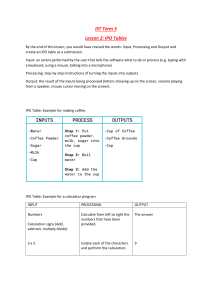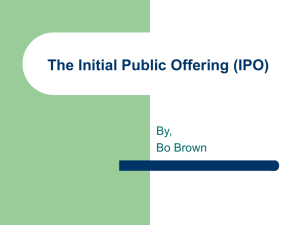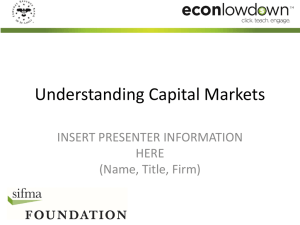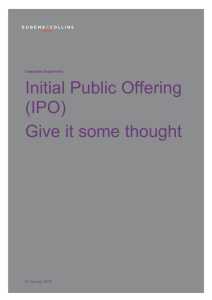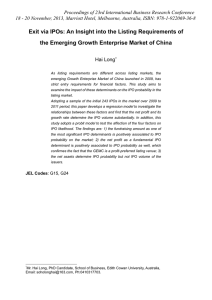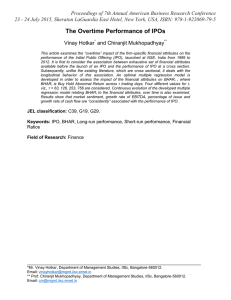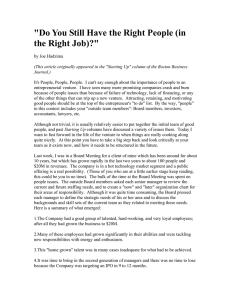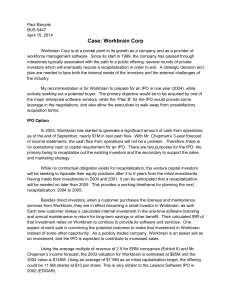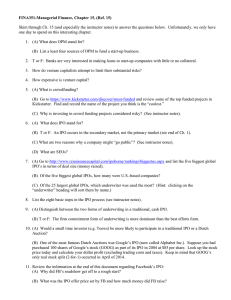Initial Public Offering (IPO) FINANCIAL MANAGEMENT LE CAOUS Emilie MA2N0213
advertisement
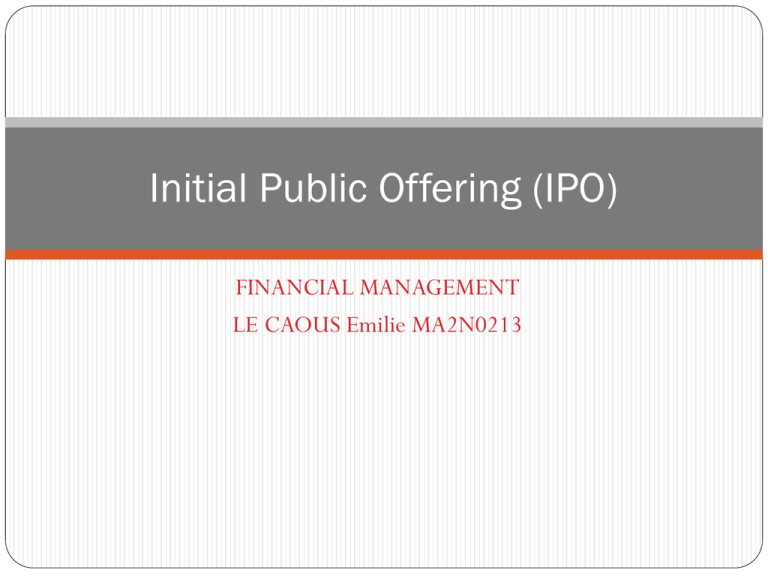
Initial Public Offering (IPO) FINANCIAL MANAGEMENT LE CAOUS Emilie MA2N0213 http://www.forbes.com/sites /ryanmac/2014/09/22/alibab a-claims-title-for-largestglobal-ipo-ever-with-extrashare-sales/ What is an IPO? An Initial Public Offering is the first sale of stock by a private company to the public. If the company has never issued equity to the public, it’s known as an IPO. Companies: can be private and public. Public companies have sold at least a portion of themselves to the public and trade on a stock exchange. This is why doing an IPO is also referred to as “going public”. Assistance of an underwriting firm, which helps it determine what type of security to issue, the best offering price and the time to bring it to market. Why go public? Because of the increased attention, public companies can usually better rates when they issue debt. A public company can always issue more stock. Trading in the open markets means liquidity. Being on a major stock exchange carries a considerable amount of prestige. How to go on an IPO? Steps: The company and the investment bank will first meet to negotiate the deal. Once all sides agree to a deal, the investment bank puts together a registration statement to be filed with the SEC (Securities and Exchange Commission). The SEC then requires a cooling off period, in which they investigate and make sure all material information has been disclosed. During the cooling off period the underwriter puts together what is known as the red herring. This contains all the information about the company except for the offer price and the effective date, which aren't known at that time. With the red herring in hand, the underwriter and company attempt to hype and build up interest for the issue. They go on a road show - also known as the "dog and pony show" - where the big institutional investors are courted. Once the SEC approves the offering, a date (the effective date) is set when the stock will be offered to the public. As the effective date approaches, the underwriter and company sit down and decide on the price. Finally, the securities are sold on the stock market and the money is collected from investors. What to be careful with when getting on an IPO? Few things to look out for: Your main source of data is the red herring, so make sure you examine this document carefully. Be more wary of smaller investment banks because they may be willing to underwrite any company. If you look at the charts following many IPOs, you'll notice that after a few months the stock takes a steep downturn. This is often because of the lock-up period. Flipping is reselling a hot IPO stock in the first few days to earn a quick profit. Avoid the hype. Thank you for your attention! ANY QUESTIONS?
